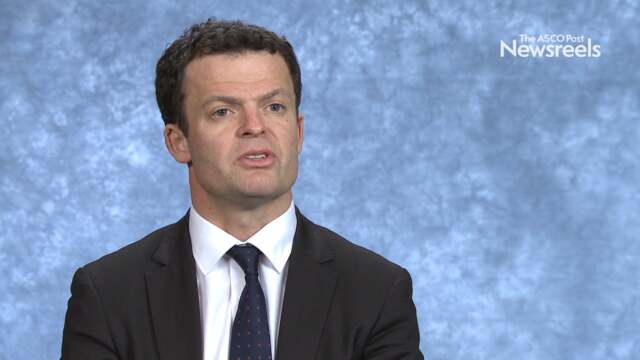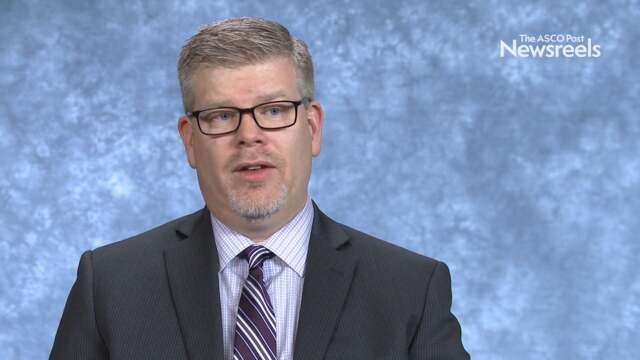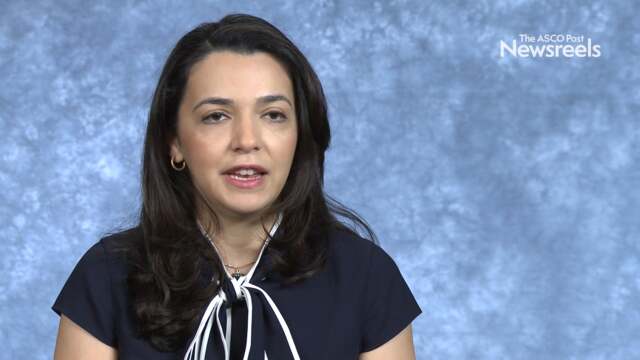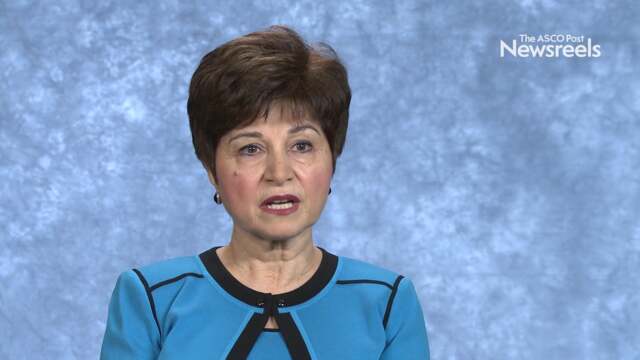Robert G. Bristow, MD, PhD, on Prostate Cancer: Keynote Lecture
2018 Genitourinary Cancers Symposium
Robert G. Bristow, MD, PhD, of Manchester Cancer Research Centre, discusses germline and somatic mutations; new ways to generate biomarkers that may describe tumor complexity; and how, in the future, this information may help triage patients with aggressive prostate tumors to intensified treatments.
Thomas Powles, MD, of Barts Cancer Institute, discusses phase III study findings on atezolizumab vs chemotherapy in platinum-treated locally advanced or metastatic urothelial carcinoma, with an emphasis on immune biomarkers, tumor mutational burden, and clinical outcomes (Abstract 409).
Nicholas D. James, MBBS, PhD, of University Hospitals Birmingham NHS Foundation Trust, discusses study findings on the addition of docetaxel to first-line hormone therapy in prostate cancer, an analysis focusing on cost-effectiveness and long-term and quality-adjusted survival (Abstract 162).
Gregory R. Pond, PhD, of McMaster University, discusses a new six-factor prognostic model for patients with advanced urothelial carcinoma receiving post platinum atezolizumab (Abstract 413).
Fatima Karzai, MD, of the National Institutes of Health, discusses phase II findings on olaparib and durvalumab in metastatic castration-resistant prostate cancer in an unselected population (Abstract 163).
Maha Hussain, MD, of Northwestern University, discusses phase III findings on enzalutamide in men with nonmetastatic castration-resistant prostate cancer (Abstract 3).





